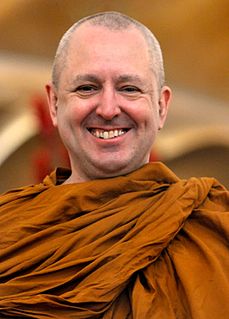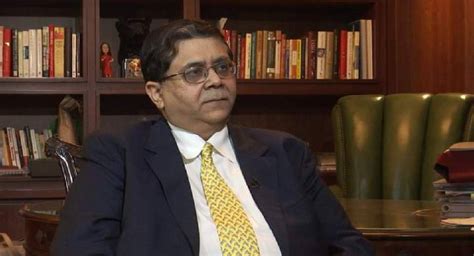A Quote by Bill Gates
By almost any measure, the world is better than it has ever been. People are living longer, healthier lives. Many nations that were aid recipients are now self-sufficient. You might think that such striking progress would be widely celebrated, but in fact, Melinda and I are struck by how many people think the world is getting worse. The belief that the world can’t solve extreme poverty and disease isn’t just mistaken. It is harmful. That’s why in this year’s letter we take apart some of the myths that slow down the work. The next time you hear these myths, we hope you will do the same.
Quote Topics
Aid
Almost
Any
Apart
Been
Belief
Better
Celebrated
Disease
Down
Ever
Extreme
Extreme Poverty
Fact
Getting
Harmful
Healthier
Hear
Hope
How
How Many People
In Fact
Just
Letter
Lives
Living
Living Long
Longer
Many
Measure
Might
Mistaken
Myths
Nations
Next
Next Time
Now
People
Poverty
Progress
Same
Self
Self-Sufficient
Slow
Slow Down
Solve
Some
Striking
Struck
Sufficient
Take
Than
Think
Time
Were
Why
Widely
Will
Work
World
Worse
Would
Would Be
Year
Related Quotes
The lesson here is very simple. But it is striking how often it is overlooked. We are so caught in the myths of the best and the brightest and the self-made that we think outliers spring naturally from the earth. We look at the young Bill Gates and marvel that our world allowed that thirteen-year-old to become a fabulously successful entrepreneur. But that's the wrong lesson. Our world only allowed one thirteen-year-old unlimited access to a time sharing terminal in 1968. If a million teenagers had been given the same opportunity, how many more Microsofts would we have today?
There's no way in which you can ever win a war against terror. As long as there are conditions in many parts of the world that make people desperate: poverty, disease, ignorance, etc. I hope that we will discover soon, that we can survive, only together. We can prosper only together. And I think people are beginning to realize this, that you can't have pockets of prosperity in one part of the world and huge deserts of poverty and deprivation and think you can have a stable, secure world.
It was curious to think that the sky was the same for everybody, in Eurasia or Eastasia as well as here. And the people under the sky were also very much the same--everywhere, all over the world, hundreds or thousands of millions of people just like this, people ignorant of one another's existence, held apart by walls of hatred and lies, and yet almost exactly the same--people who had never learned to think but were storing up in their hearts and bellies and muscles the power that would one day overturn the world.
How many times have you tried to solve “the problem”? you’ll be trying to solve it not just until you die but for many more lifetimes. Instead, understand that this world is just the play of the senses. It’s the five khandhas doing their thing; it has nothing to do with you. It’s just people being people, the world being the world.
In India you would find people who belong to the 10 richest people in the entire world, and you would find people whose poverty levels are sub-Saharan in fact practically: people who would probably make less than a dollar a day or would only have enough for one meal. Now, to have these kinds of contrasts coexist, is something which boggles my mind. We have a country that is making great economic progress, a country that is making his presence felt all over the world, but at the same time, it is unable to deal with some of these fundamental contradictions in our economic evolution.
For a long time we have thought we were better than the living world, and now some of us tend to think we are worse, that everything we touch turns to soot. But neither perspective is healthy. We have to remember how it feels to have equal standing in the world, to be "between the mountain and the ant . . . part and parcel of creations," as the Iroquois traditionalist Oren Lyons says.
I'm not any different than anybody else. But I do see a world, for me, that's getting better and better, not worse and worse. And I believe that world peace is coming quicker than we think. And I believe that people are not only yearning for it but will see a way to get it and help that way to come sooner. And it's going to be beautiful.
We must dispel the negative and harmful atmosphere that has been created by avaricious and unprincipled realtors who engage in "blockbusting." If we had in America really serious efforts to break down discrimination in housing, and at the same time a concerted program of government aid to improve housing for Negroes, I think that many white people would be surprised at how many Negroes would choose to live among themselves, exactly as Poles and Jews and other ethnic groups do.
We no longer think of chairs as technology, we just think of them as chairs. But there was a time when we hadn't worked out how many legs chairs should have, how tall they should be, and they would often "crash" when we tried to use them. Before long, computers will be as trivial and plentiful as chairs and we will cease to be aware of the things. In fact I'm sure we will look back on this last decade and wonder how we could ever have mistaken what we were doing with them for "productivity"
Is there an answer to the question of why bad things happen to good people?...The response would be…to forgive the world for not being perfect, to forgive God for not making a better world, to reach out to the people around us, and to go on living despite it all…no longer asking why something happened, but asking how we will respond, what we intend to do now that it has happened.
If our well-being depends upon the interaction between events in our brains and events in the world, and there are better and worse ways to secure it, then some cultures will tend to produce lives that are more worth living than others; some political persuasions will be more enlightened than others; and some world views will be mistaken in ways that cause needless human misery.
We do live in an unsafe world. That's the truth. I'm dealing with that now, with my seven-year-old. He's grappling with the fact that the world is unsafe, and that there are people who do harmful things. I don't think there's anything wrong with presenting that idea. We can't lie to our children and pretend that the world is perfect, and everybody's happy, and everybody's out there to do good. It's just part of a bigger conversation.



































